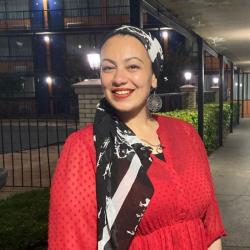With a youth population approaching 60% in Egypt, introducing a sexual and reproductive health and rights (SRHR) program for adolescents is not a politically neutral step. In the education sphere, such rights could be promoted through the institutionalization of a comprehensive sexuality education (CSE) curriculum framework. The promise of such a framework would lie in implementing it through participatory, decolonial methods. The peril would derive from implementing it in a silo for purposes of population control.
When implemented through participatory, decolonial methods, such a framework could foster a space for multiple actors—including civil society organizations, public schools, health providers, and young people—to solve real problems, like reducing girls’ pushout from schools, early marriage, in-school violence, and the humiliating, violent treatment of boys intended to reinforce a standard masculinity. CSE can empower young people with the skills and knowledge necessary to form a better self-image, understand others, reconstruct and transform gender norms (which could lead to gender-equitable schools), enhance young people’s overall well-being, and positively contribute to the Egyptian economy.
In 2022, the Ministry of Education and Technical Education in Egypt signed a memorandum of understanding with the United Nations Population Fund to develop a comprehensive middle and secondary school “Curriculum Framework for Reproductive Health and Population Issues.” However, this framing could be problematic. When CSE curricula are crafted solely for population and birth control, rather than as a fundamental component of sexual and reproductive health and rights, this often serves as a superficial solution to poverty—reflecting a capitalist fear of “the poor” overpopulating and taking over the places of the rich or elite—instead of addressing unjust global economic policies. In fact, it is population emancipation through education, especially for women, that has historically proven to lead to regulated fertility and decreased poverty.
Egypt has long shown commitment to improving conditions for women, whether through a strong civil society movement or partnerships with religious leaders and institutions to develop higher education curricula for population studies and fight female genital mutilation (FGM), stressing that it is not an Islamic practice. If backed by political will, this history could pave the road for strong partnerships between the state, civil society, and religious communities when thinking about institutionalizing a decolonial approach to a rights-based CSE across Egyptian schools.
Comprehensive sexual education as a contested terrain
Evidence from other low- and middle-income countries suggests communities resist CSE programs when not implemented through context- and place-based approaches, creating a gap between policy and implementation. Developing a decolonial, rights-based CSE program that gets adopted by different societal circles requires renegotiating state agendas on gender equity and reproductive health; considering institutions’ cultural and religious orientations, people’s diverse practices, and patriarchal norms; centering adolescent voices and their real plights when it comes to navigating issues of sex, sexuality, and reproductive health; finding alignment with teachers’ and parents’ values; and considering guidance from the international community and local rights groups. It is, indeed, a contested terrain!
In a middle-income, Muslim-majority country like Egypt, a decolonial policy could help avoid the pitfalls portrayed in international human rights articles that express essentialist beliefs about religion as a hindering force in sexual and reproductive rights. Hence, a decolonial approach to a rights-based CSE can serve to involve everyone and interrogate the problematic histories of international agendas and local authoritarian ones to create a relevant, place-based intervention. Failure to do so may result in yet another irrelevant textbook in students’ already heavy school bags.
As a community arts facilitator and participatory researcher, I have developed an SRHR curriculum that encourages students to explore sexual and reproductive health through the lens of power dynamics. This education is deeply rooted in decolonial methods, i.e., allowing young people to deconstruct and redefine societal norms. It uses community arts, such as storytelling and Theatre of the Oppressed, to give students a space to embody changemaking, deconstruct oppressive gender norms, rehearse a multitude of possible actions to advance their desired outcomes, and renegotiate their positions in society through identifying potential allies in their surrounding communities. Through this curriculum implementation, I met Mona (name changed for privacy), a young woman who married underage, got pregnant, and divorced. Mona was empowered to apply the negotiation strategies she learned, ultimately gaining financial rights and custody of her children and resisting the extended family’s push for her daughter’s FGM. Her experience highlights the potential impacts of adopting a curriculum approach that goes beyond simply relaying information or raising awareness to embody practices that deconstruct power dynamics at the heart of CSE.
Building on this work, I am delighted to join the Brookings Institution as a 2023 Echidna Global Scholar to pursue the following timely questions: How can Egyptian education stakeholders—particularly, the state and society—collaborate to build a decolonial curriculum framework and provide guidance for effective implementation of sexual and reproductive health education? How can we ensure this curriculum is a tool of liberation rather than control? And what would “liberation” mean in the context of Egypt and its specific cultural and religious frameworks?
I bring to this work a unique lens as a female, Muslim, Egyptian social justice educator, community worker, and Global South policy researcher and adviser informed by the rich history of pre-modern sexual ethics in Islam, which featured a continuous process of negotiation intended to address people’s real plights. Additionally, I am a believer in the liberatory power of critical and transformative arts-based education that gives a platform for people’s voices.
The aim of my research will be to inform Egypt’s reproductive and population health curriculum and implementation road map for middle and secondary schools, currently in development. The relevance of this research also extends to countries with similar cultural, geopolitical, and economic contexts that are embarking on or revamping CSE programs within formal schooling or community education.


Commentary
The promise—and peril—of comprehensive reproductive and sexual education in Egypt
October 20, 2023